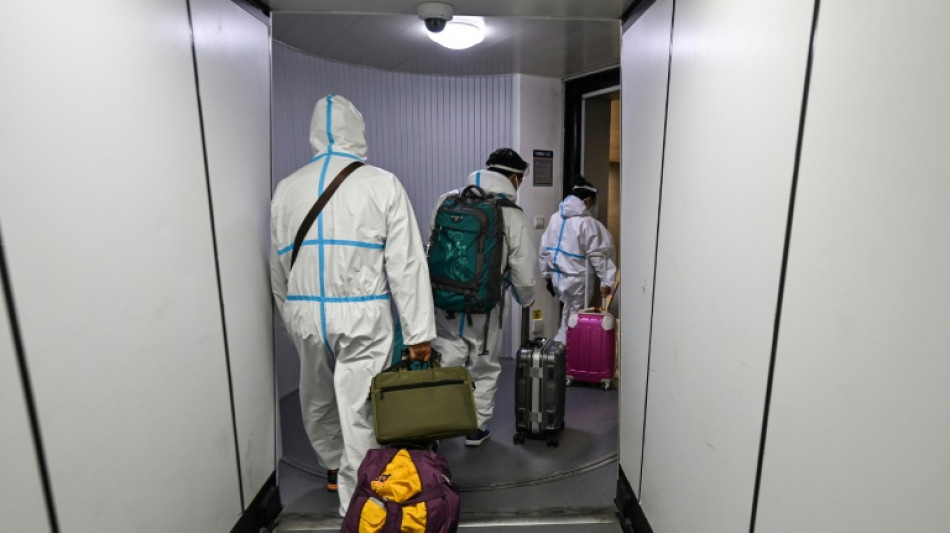
RIO
-0.6450


Chinese reacted with joy and rushed to book flights overseas Tuesday after Beijing said it would scrap mandatory Covid quarantine for overseas arrivals, ending almost three years of self-imposed isolation.
In a snap move late Monday, China said from January 8 inbound travellers would no longer be required to quarantine upon arrival, in a further unwinding of hardline Covid-19 controls that had torpedoed its economy and sparked nationwide protests.
Chinese social media users reacted with joy to the end of restrictions that have kept the country largely closed off to the outside world since March 2020.
"It's over... spring is coming," said one top-voted comment on the Twitter-like Weibo social media site.
Online searches for flights abroad surged on the news, state media reported, with the travel platform Tongcheng seeing an 850 percent jump in searches and a tenfold jump in inquiries about visas.
"Preparing for my trip abroad!" one Weibo user wrote.
"I hope the price of the return ticket doesn't rise again!" another said.
The new rules follow China's decision this month to roll back much of a zero-Covid regime that had mandated mass testing, strict lockdowns and long quarantines in government-run facilities.
Cases have surged nationwide following that easing, in an outbreak that authorities have admitted is now "impossible" to track.
And in the face of mounting concerns that the country's wave of infections is not being accurately reflected in official statistics, Beijing's National Health Commission (NHC) Saturday said it would no longer publish daily tallies of the number of cases.
That followed a decision last week to narrow the criteria by which Covid-19 fatalities were counted -- a move experts said would suppress the number of deaths attributable to the virus.
- 'Protect themselves' -
The winter surge comes ahead of two major public holidays next month, in which millions of people are expected to travel to their hometowns to reunite with relatives.
Hospitals and crematoriums across the country have been overflowing with Covid patients and victims, with studies estimating around one million people could die over the next few months.
Major cities are now grappling with shortages of medicine, while emergency medical facilities are strained by an influx of undervaccinated elderly patients.
Beijing has insisted throughout the wave of infections that the country is prepared to weather the storm -- and urged people to take responsibility for their own health.
"We need the public to properly protect themselves, continue to cooperate with the implementation of relevant prevention and control measures," Liang Wannian, an epidemiologist and the head of an expert group at the NHC tasked with responding to the Covid-19 pandemic, told state news agency Xinhua.
"We need to shift the focus of our work from infection prevention and control to medical treatment."
H.Takahashi--JT